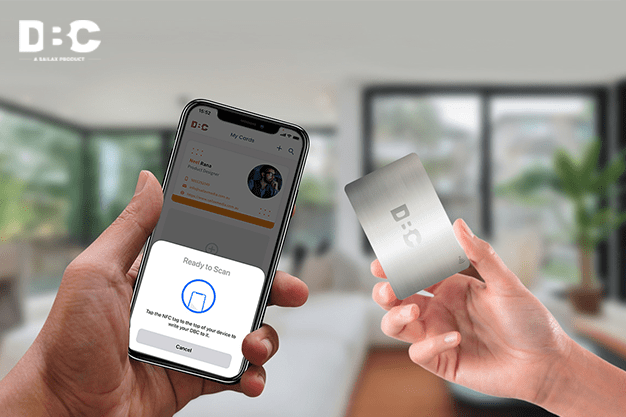In the digital era, where information is readily accessible with just a few clicks, traditional paper business cards may seem outdated. However, the rise of Near Field Communication (NFC) technology has sparked a new wave of innovation in business card exchanges. NFC-enabled business cards are revolutionizing the way professionals network and connect. In this blog post, we will explore the role of NFC technology in the evolution of business card exchanges and how it is reshaping the networking landscape.
- The Limitations of Traditional Business Cards
Traditional paper business cards have served as a staple in networking for decades. However, they come with inherent limitations. Firstly, they are easily lost, damaged, or forgotten. Secondly, they require manual entry of information, which is time-consuming and prone to errors. Thirdly, the growing concern for sustainability has shed light on the environmental impact of paper waste.
- The Introduction of NFC Technology
Near Field Communication (NFC) technology emerged as a solution to overcome the limitations of traditional business cards. NFC allows for contactless communication between two devices in close proximity. NFC-enabled business cards incorporate a tiny chip that stores and transmits data wirelessly when tapped against an NFC-enabled device, such as a smartphone.
- Enhanced Contact Exchange Experience
NFC technology has transformed the contact exchange experience by making it seamless and effortless. With a simple tap, professionals can instantly exchange contact details, eliminating the need for manual entry or relying on memory. The information shared through NFC includes not only basic contact information but also links to websites, portfolios, and social media profiles, providing a comprehensive overview of one’s professional presence.
- Interactive and Dynamic Business Cards
NFC-enabled business cards offer an interactive and dynamic experience. The NFC chip can be programmed to trigger specific actions when tapped against a device. For example, it can launch a website, display a portfolio, initiate a call, or send an email. This interactivity allows professionals to showcase their work, products, or services directly from their business card, creating a memorable impression.
- Efficient Contact Management
One of the significant advantages of NFC technology in business card exchanges is efficient contact management. By leveraging NFC-enabled devices and contact management apps, professionals can automatically store received contact information digitally. This eliminates the need for manual entry and ensures accurate and up-to-date contact records. Additionally, the integration of NFC with CRM systems streamlines lead generation and customer relationship management processes.
- Sustainability and Cost-Effectiveness
NFC-enabled business cards align with the growing emphasis on sustainability. By replacing paper cards with digital alternatives, professionals can contribute to reducing paper waste and environmental impact. Furthermore, NFC technology eliminates the need for continuously printing new cards, saving costs associated with design, printing, and distribution.
- Security and Privacy Considerations
When discussing NFC technology, security and privacy are crucial aspects to consider. NFC-enabled business cards provide secure data transmission through encryption protocols, ensuring that sensitive information remains protected. Additionally, users have control over what information they choose to share, enhancing privacy and allowing for selective sharing of contact details.
- The Future of Business Card Exchanges
NFC technology represents just the beginning of the evolution of business card exchanges. As technology continues to advance, we can expect further innovations, such as augmented reality (AR) business cards or integration with blockchain for enhanced data integrity. The future holds exciting possibilities for networking and connecting in a digital world.
Conclusion
In conclusion, NFC technology has played a significant role in the evolution of business card exchanges. It has transformed the contact exchange experience, making it effortless, interactive, and dynamic. NFC-enabled business cards streamline contact management, enhance sustainability, and offer improved security and privacy. As professionals embrace the digital age, NFC technology



